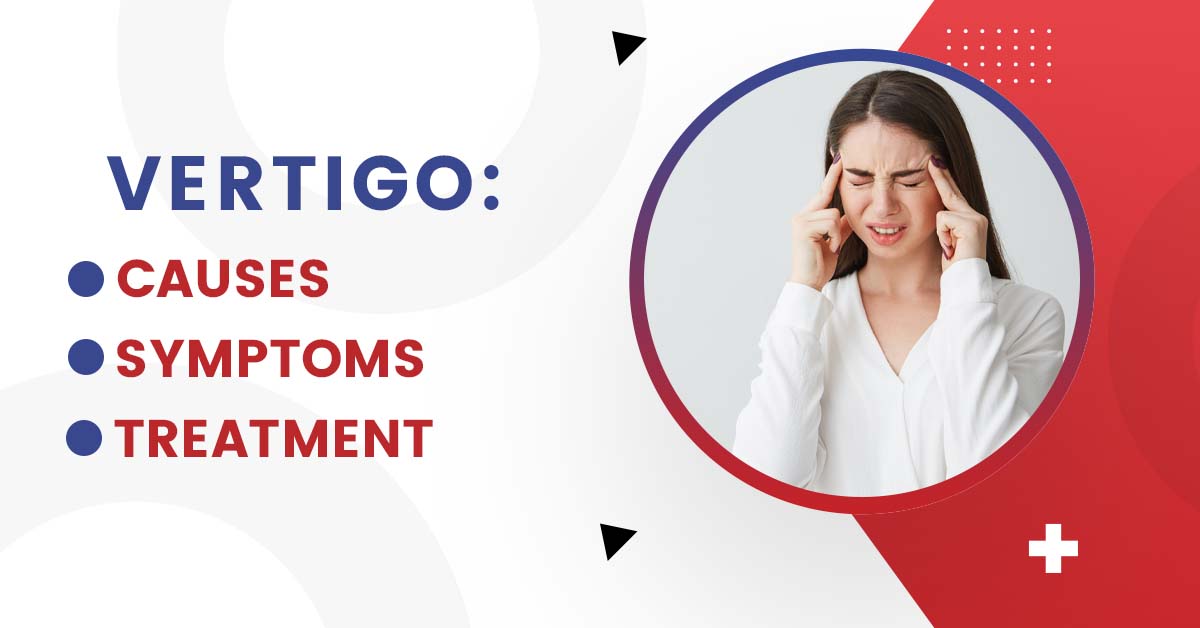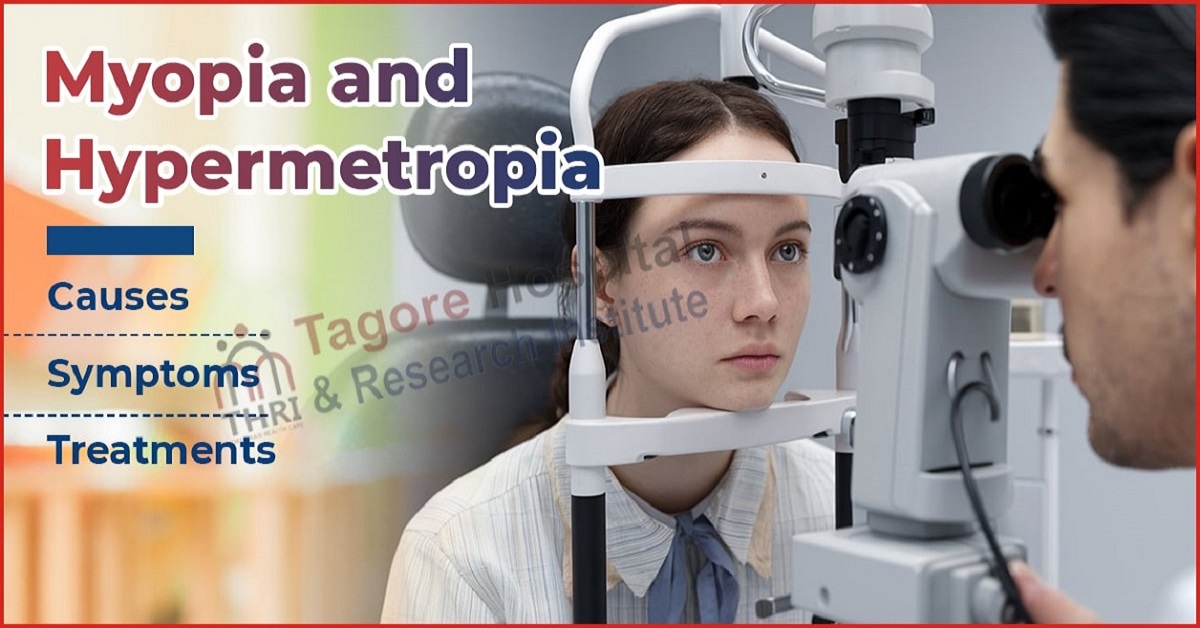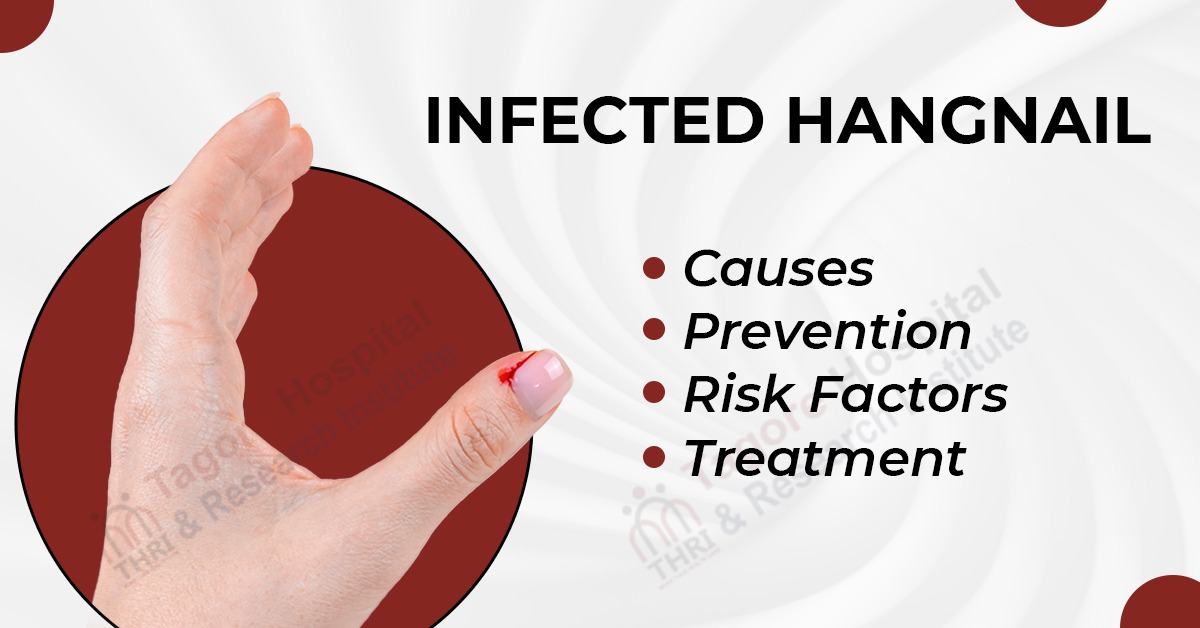- By THRI Admin
- Posted August 22, 2022
What is Vertigo?
When you have vertigo, you feel like everything is spinning out of control around you. You can feel woozy and unsteady as a result. Insomnia is not a sickness. Instead, it's a sign of several ailments.
Dizziness is one of the most common medical conditions that people visit their doctors for. Dizziness that occurs frequently or constantly might harm your life. It is rare for fainting to indicate a life-threatening condition.
Types of Vertigo:
Peripheral and central vertigo are the two types of dizziness (vertigo).
Peripheral vertigo
The most typical form of dizziness is peripheral vertigo. It happens as a result of an issue with the vestibular nerve, which regulates balance, or the inner ear.
Central vertigo
Central vertigo is brought on by a neurological issue. It may be brought on by several different conditions, such as:
- stroke
- brain tumour
- migraine
- traumatic brain injury
- infection
- multiple sclerosis
Causes of Vertigo:
Vertigo can be caused by a variety of disorders, but it typically results from either an imbalance in the inner ear or an issue with the central nervous system (CNS).
The following conditions are examples of those that might cause vertigo.
Labyrinthitis
When the inner ear labyrinth becomes inflamed due to an infection, this condition may develop. The vestibulocochlear nerve is located here. The motion, position, and sound of the head are all communicated to the brain via this nerve. A person with labyrinthitis may also experience hearing loss, tinnitus, migraines, ear pain, and visual alterations in addition to dizziness with vertigo.
Vestibular Neuritis
Vestibular neuritis, an inflammation of the vestibular nerve, is brought on by an infection. Although it resembles labyrinthitis, it does not impair hearing. Vertigo brought on by vestibular neuritis may also be accompanied by acute nausea, blurred vision, or a sense of unsteadiness.
Cholesteatoma
This benign skin growth appears in the middle ear and is typically brought on by recurrent infection. It can harm the bone components of the middle ear as it develops behind the eardrum, resulting in hearing loss and vertigo.
Meniere's Disease
This condition results in an accumulation of fluid in the inner ear, which can cause hearing loss and vertigo bouts with ringing in the ears. People between the ages of 40 and 60 seem to experience it more frequently.
Although the exact reason is unknown, blood vessel narrowing, a viral infection, or an autoimmune reaction are potential causes. There could be a genetic component as well, which would explain why it runs in some families.
Benign paroxysmal positional vertigo (BPPV)
The inner ear's otolith organs are organs that hold fluid and calcium carbonate crystallised particle fragments. These crystals are displaced and fall into the semicircular canals during BPPV. Each tumbling crystal there moves and comes into contact with sensitive hair cells.
Spinning dizziness develops as a result of the brain receiving false information about a person's position. Vertigo episodes normally persist for less than 60 seconds, however, nausea and other symptoms might also occur.
Other Factors:
Vertigo can also occur with:-
- Migraine headaches
- a head injury
- ear surgery
- Perilymphatic fistula: When one of the two membranes separating the middle ear from the inner ear tears, inner ear fluid spills into the middle ear.
- Inflammation of the ears caused by shingles - herpes zoster oticus
- Hearing loss is caused by otosclerosis, a problem with bone growth in the middle ear
- syphilis
- Symptoms of ataxia include weakness of the muscles
- Occasionally referred to as a ministroke, a stroke or transient ischemic attack
- cerebellar or brain stem disease
- a benign growth called an acoustic neuroma that appears on the vestibulocochlear nerve close to the inner ear.
- multiple sclerosis
Symptoms of Vertigo:
A shift in head positioning is a common cause of vertigo.
Vertigo is frequently described by sufferers as feeling like:
- Spinning
- Tilting
- Swaying
- Unbalanced
- Pulled in one direction
Vertigo may sometimes be accompanied by other symptoms, such as:
- Feeling nauseated
- Vomiting
- Abnormal or jerking eye movements (nystagmus)
- Headache
- Sweating
- Ringing in the ears or hearing loss
Vertigo Diagnosis:
Your doctor could quickly request an MRI or CT scan if you are older, have had a head injury, or are suspected of having a stroke.
The majority of patients who visit their doctor for dizziness will initially be questioned about their symptoms and current medications before having a physical examination.
During this examination, your doctor will assess your balance and gait as well as the health of your central nervous system's primary nerves.
A hearing and balance test may also be necessary, including:-
Eye movement testing- When you follow a moving item, your doctor may observe the movement of your eyes. Additionally, you might have an eye motion test during which air or water is inserted into your ear canal.
Head movement testing- Your doctor may perform a quick head movement test known as the Dix-Hallpike manoeuvre to confirm the diagnosis if they suspect that your vertigo is being caused by benign paroxysmal positional vertigo.
Posturography- The results of this test let your doctor know which components of your balance system you depend on the most and which ones might be causing you issues. On a platform, you stand barefoot while attempting to maintain your balance in various scenarios.
Rotary chair testing- You will be asked to take this exam while sitting in a chair that is controlled by a computer and rotates gently. It goes back and forth in a relatively narrow arc at faster speeds.
Treatment for Vertigo:
The cause of vertigo will determine how it is treated. It is common for vertigo to go away by itself most of the time. This is so that your brain may rely on other balance-preserving mechanisms while adapting, at least in part, to the inner ear modifications.
Some people require treatment, which may entail:
Vestibular Rehabilitation- This kind of physical therapy works to support the vestibular system's growth. The vestibular system's job is to inform the brain about how the head and body are moving concerning gravity.
If you experience frequent episodes of dizziness, vestibular rehabilitation may be advised. It aids in conditioning your other senses to make up for dizziness.
Canalith Repositioning Maneuvers- For BPPV, neurology suggests a set of particular head and body motions. For the calcium deposits to be absorbed by the body, movements are made to shift them from the canal and into an inner ear chamber. As the canaliths move throughout the treatment, you can have vertigo symptoms.
You can get help from a doctor or physical therapist as you perform the exercises. The exercises are secure and frequently successful.
Medicine- In some instances, medication may be administered to treat vertigo-related symptoms including nausea or motion sickness. Antibiotics or steroids may reduce edema and treat an infection if it is the cause of vertigo. Diuretics (water tablets) may be used for Meniere's illness to lessen pressure from fluid buildup.
Surgery- In a few situations, vertigo may require surgery. Treatment for the more serious underlying issues that may be causing vertigo, such as a tumour or injury to the brain or neck, may assist to reduce vertigo.
Home Remedies:
- Be mindful of the chance that you might lose your equilibrium, which could cause you to fall and suffer a catastrophic injury.
- Avoid jerky movements and, if necessary, use a cane to provide stability.
- Remove tripping hazards like area rugs and exposed electrical wires to fall-proof your home. Put non-slip mats on the floors of your shower and bathtub. Employ good lighting.
- If you begin to feel dizzy, sit or lay down right away. If you have a severe case of vertigo, lie still with your eyes closed in a dimly lit area.
- If you frequently feel dizzy without notice, refrain from operating machinery or driving a car.
- Steer clear of salt, alcohol, caffeine, and smoke. Use of these substances in excess can make your signs and symptoms worse.
- Avoid stress and consume enough fluids, eat a healthy diet, and get enough sleep.
- If a medicine is the source of your dizziness, talk to your doctor about stopping taking it or reducing the dosage.
- Try an over-the-counter (nonprescription) antihistamine such as meclizine or dimenhydrinate if your nausea is accompanied by dizziness (Dramamine). These could make you feel sleepy. Antihistamines without sedation are less efficient.
- If you're feeling lightheaded because you're hot or dehydrated, find a cool spot to sit and drink some water or sports drink (Gatorade, Powerade, others).
Tags





